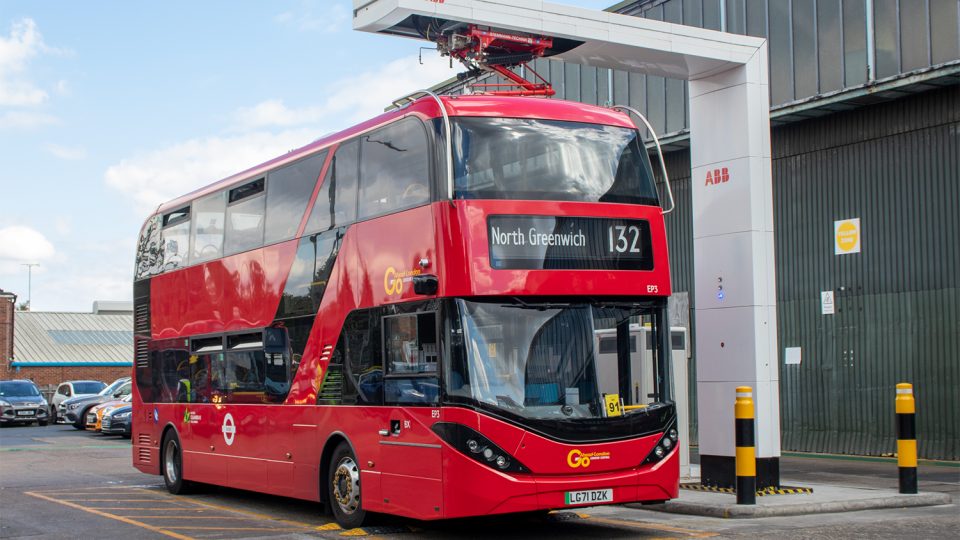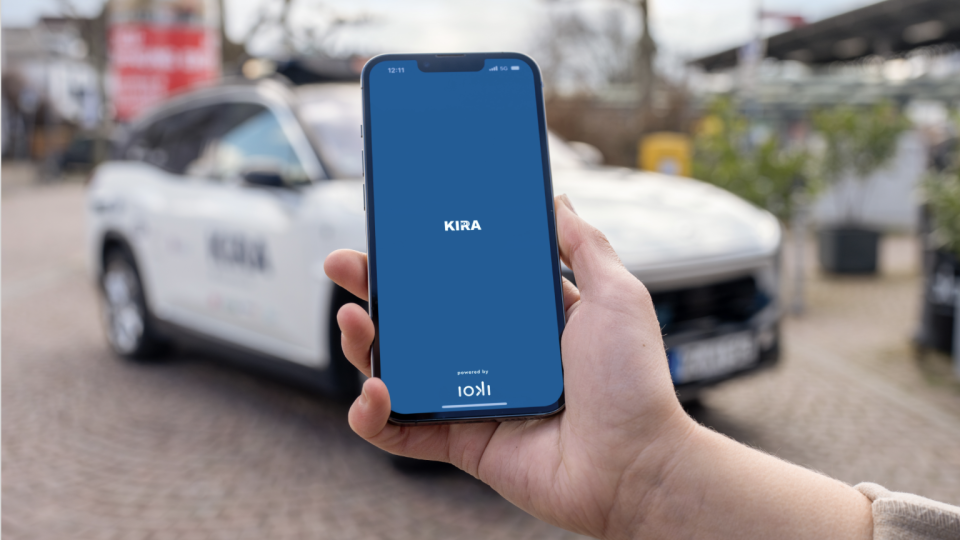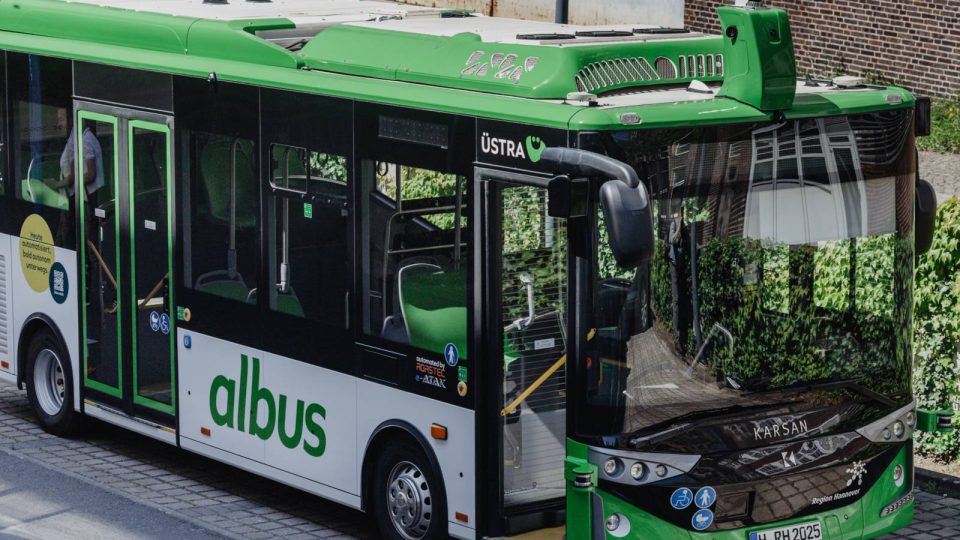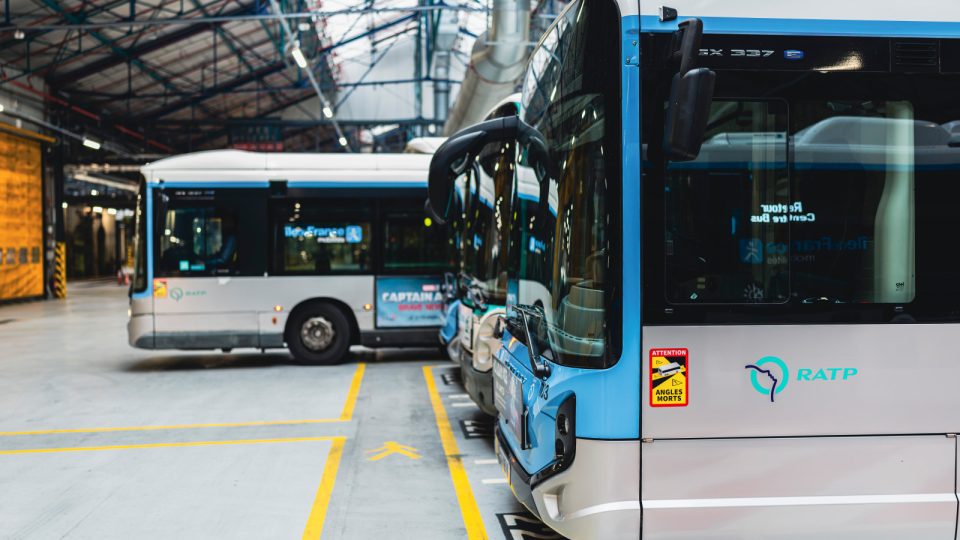Volvo Buses is testing an autonomous driving support for docking at bus stops
Volvo Buses is testing a new concept for autonomous driver support, which consists in a system that assists the driver in situations that require high precision and safety, such as approaching and stopping at a bus stop. The system regulates the bus’s speed and steers automatically, allowing the driver to focus on what is happening around […]
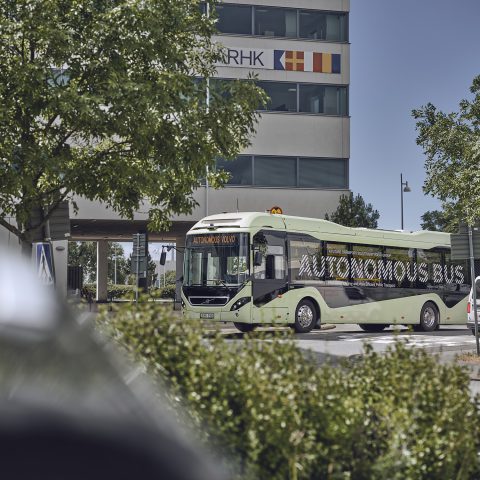
Volvo Buses is testing a new concept for autonomous driver support, which consists in a system that assists the driver in situations that require high precision and safety, such as approaching and stopping at a bus stop. The system regulates the bus’s speed and steers automatically, allowing the driver to focus on what is happening around the bus.
The Swedish group has released a study with Chalmers University of Technology claiming that bus drivers show high level of appreciation for autonomous driver support systems that enable buses to dock at bus stops.
Many cities are growing and to meet the challenges this entails, we must have public transport, infrastructure and urban planning that is sustainable, safe and efficient. Studies such as this provide important insights into our work to develop sustainable solutions for the public transport of the future
Anna Westerberg, President of Volvo Buses
Volvo Buses tests on autonomous driving
In 2018, Volvo Buses presented its first electric self-driving bus in Singapore. Since then, several tests and live demonstrations on autonomous buses have been conducted, including one with the Nanyang Technological University in Singapore.
However, there are still many other aspects that need to be taken into consideration when a vehicle’s control and decision making is taken over by automation. As part of Volvo Buses development work and research into automation, Volvo Buses is now testing a concept for autonomous driver support. The system assists the driver in situations that require high precision and safety, such as approaching and stopping at a bus stop.
As mentioned above, the system regulates the bus’s speed and steers automatically, allowing the driver to focus on what is happening around the bus.
“Complex traffic situations place high demands on today’s bus drivers. With self-driving technology, there are new opportunities to create solutions that simplify their work. At Volvo Buses, we believe it is very important to involve those who will use the technology early in its development. It enables us to find out how they respond to it, and if it is something they think they can benefit from,” says Joakim Jonsson, Project Manager Autonomous Research Projects at Volvo Buses.
Drivers’ reaction to autonomous driving support?
In the scientific study Bus drivers acceptance of a Narrow Navigation System, researchers at Design & Human Factors at the Chalmers University of Technology investigated how bus drivers react to the concept of autonomous driver support. Ten drivers conducted a total of 250 autonomous approaches at a bus stop while being filmed to see if their attention and body movements changed over time. The drivers also had to answer various questionnaires and were interviewed both before and after driving.
The research project is part of Drive Sweden’s project KRABAT, which is partly financed by Vinnova. In parallel, Volvo Buses is also conducting a study with passengers and their experiences with autonomous buses.
The results show that the drivers in the study were generally positive, Volvo Buses points out: «They showed great acceptance of the system and found it safe and convenient to use».
Autonomous driving and safety
“The study also revealed that they see many potential benefits to the system. One is that the approach to the bus stop becomes easier and more precise. When drivers do not have to focus on being at the right distance from the pavement, they can pay attention to things that increase the safety of passengers both inside and outside the bus. Several drivers also believe that the system can contribute to better ergonomics with less tension in the neck and shoulders,” says Mikael Johansson, who is researching user understanding of self-driving vehicles at Design & Human Factors at Chalmers University of Technology.
“Many cities are growing and to meet the challenges this entails, we must have public transport, infrastructure and urban planning that is sustainable, safe and efficient. Studies such as this provide important insights into our work to develop sustainable solutions for the public transport of the future,” says Anna Westerberg, President of Volvo Buses.




